Chris H. Q. Ding
The University of Texas at Arlington
LEGNet: Lightweight Edge-Gaussian Driven Network for Low-Quality Remote Sensing Image Object Detection
Mar 18, 2025
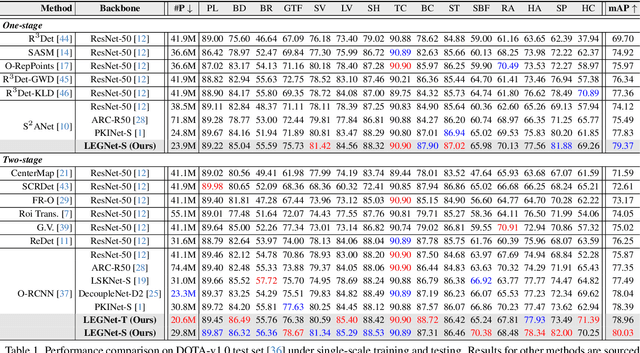
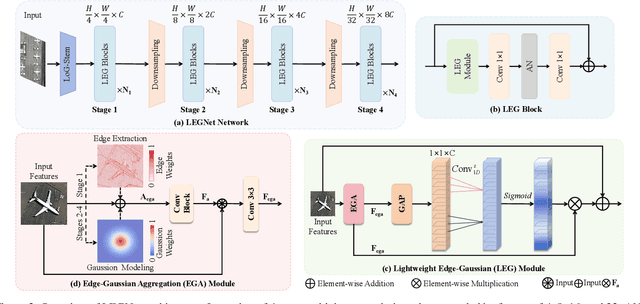
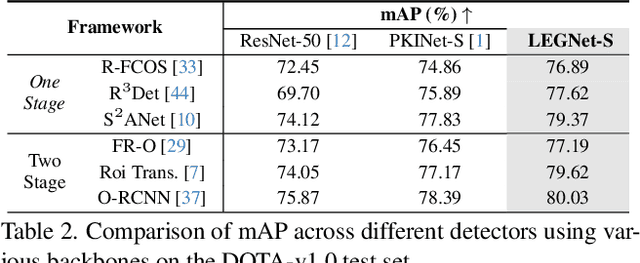
Abstract:Remote sensing object detection (RSOD) faces formidable challenges in complex visual environments. Aerial and satellite images inherently suffer from limitations such as low spatial resolution, sensor noise, blurred objects, low-light degradation, and partial occlusions. These degradation factors collectively compromise the feature discriminability in detection models, resulting in three key issues: (1) reduced contrast that hampers foreground-background separation, (2) structural discontinuities in edge representations, and (3) ambiguous feature responses caused by variations in illumination. These collectively weaken model robustness and deployment feasibility. To address these challenges, we propose LEGNet, a lightweight network that incorporates a novel edge-Gaussian aggregation (EGA) module specifically designed for low-quality remote sensing images. Our key innovation lies in the synergistic integration of Scharr operator-based edge priors with uncertainty-aware Gaussian modeling: (a) The orientation-aware Scharr filters preserve high-frequency edge details with rotational invariance; (b) The uncertainty-aware Gaussian layers probabilistically refine low-confidence features through variance estimation. This design enables precision enhancement while maintaining architectural simplicity. Comprehensive evaluations across four RSOD benchmarks (DOTA-v1.0, v1.5, DIOR-R, FAIR1M-v1.0) and a UAV-view dataset (VisDrone2019) demonstrate significant improvements. LEGNet achieves state-of-the-art performance across five benchmark datasets while ensuring computational efficiency, making it well-suited for deployment on resource-constrained edge devices in real-world remote sensing applications. The code is available at https://github.com/lwCVer/LEGNet.
LWGANet: A Lightweight Group Attention Backbone for Remote Sensing Visual Tasks
Jan 17, 2025Abstract:Remote sensing (RS) visual tasks have gained significant academic and practical importance. However, they encounter numerous challenges that hinder effective feature extraction, including the detection and recognition of multiple objects exhibiting substantial variations in scale within a single image. While prior dual-branch or multi-branch architectural strategies have been effective in managing these object variances, they have concurrently resulted in considerable increases in computational demands and parameter counts. Consequently, these architectures are rendered less viable for deployment on resource-constrained devices. Contemporary lightweight backbone networks, designed primarily for natural images, frequently encounter difficulties in effectively extracting features from multi-scale objects, which compromises their efficacy in RS visual tasks. This article introduces LWGANet, a specialized lightweight backbone network tailored for RS visual tasks, incorporating a novel lightweight group attention (LWGA) module designed to address these specific challenges. LWGA module, tailored for RS imagery, adeptly harnesses redundant features to extract a wide range of spatial information, from local to global scales, without introducing additional complexity or computational overhead. This facilitates precise feature extraction across multiple scales within an efficient framework.LWGANet was rigorously evaluated across twelve datasets, which span four crucial RS visual tasks: scene classification, oriented object detection, semantic segmentation, and change detection. The results confirm LWGANet's widespread applicability and its ability to maintain an optimal balance between high performance and low complexity, achieving SOTA results across diverse datasets. LWGANet emerged as a novel solution for resource-limited scenarios requiring robust RS image processing capabilities.
Generating and Weighting Semantically Consistent Sample Pairs for Ultrasound Contrastive Learning
Dec 08, 2022



Abstract:Well-annotated medical datasets enable deep neural networks (DNNs) to gain strong power in extracting lesion-related features. Building such large and well-designed medical datasets is costly due to the need for high-level expertise. Model pre-training based on ImageNet is a common practice to gain better generalization when the data amount is limited. However, it suffers from the domain gap between natural and medical images. In this work, we pre-train DNNs on ultrasound (US) domains instead of ImageNet to reduce the domain gap in medical US applications. To learn US image representations based on unlabeled US videos, we propose a novel meta-learning-based contrastive learning method, namely Meta Ultrasound Contrastive Learning (Meta-USCL). To tackle the key challenge of obtaining semantically consistent sample pairs for contrastive learning, we present a positive pair generation module along with an automatic sample weighting module based on meta-learning. Experimental results on multiple computer-aided diagnosis (CAD) problems, including pneumonia detection, breast cancer classification, and breast tumor segmentation, show that the proposed self-supervised method reaches state-of-the-art (SOTA). The codes are available at https://github.com/Schuture/Meta-USCL.
An Iterative Locally Linear Embedding Algorithm
Jun 27, 2012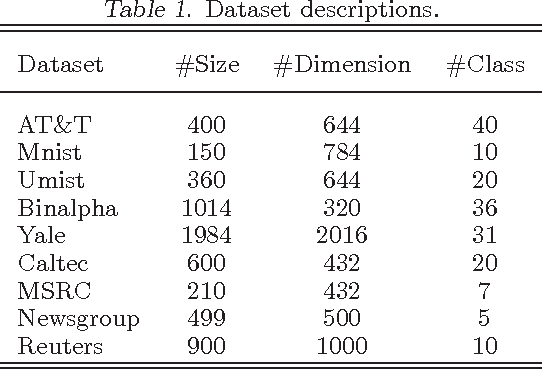

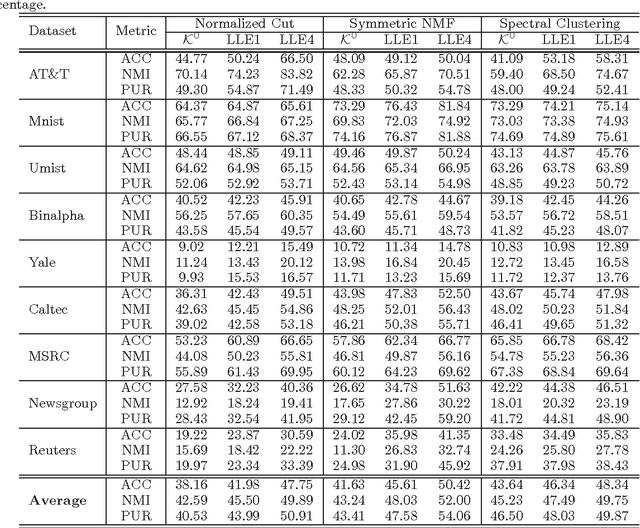

Abstract:Local Linear embedding (LLE) is a popular dimension reduction method. In this paper, we first show LLE with nonnegative constraint is equivalent to the widely used Laplacian embedding. We further propose to iterate the two steps in LLE repeatedly to improve the results. Thirdly, we relax the kNN constraint of LLE and present a sparse similarity learning algorithm. The final Iterative LLE combines these three improvements. Extensive experiment results show that iterative LLE algorithm significantly improve both classification and clustering results.
 Add to Chrome
Add to Chrome Add to Firefox
Add to Firefox Add to Edge
Add to Edge